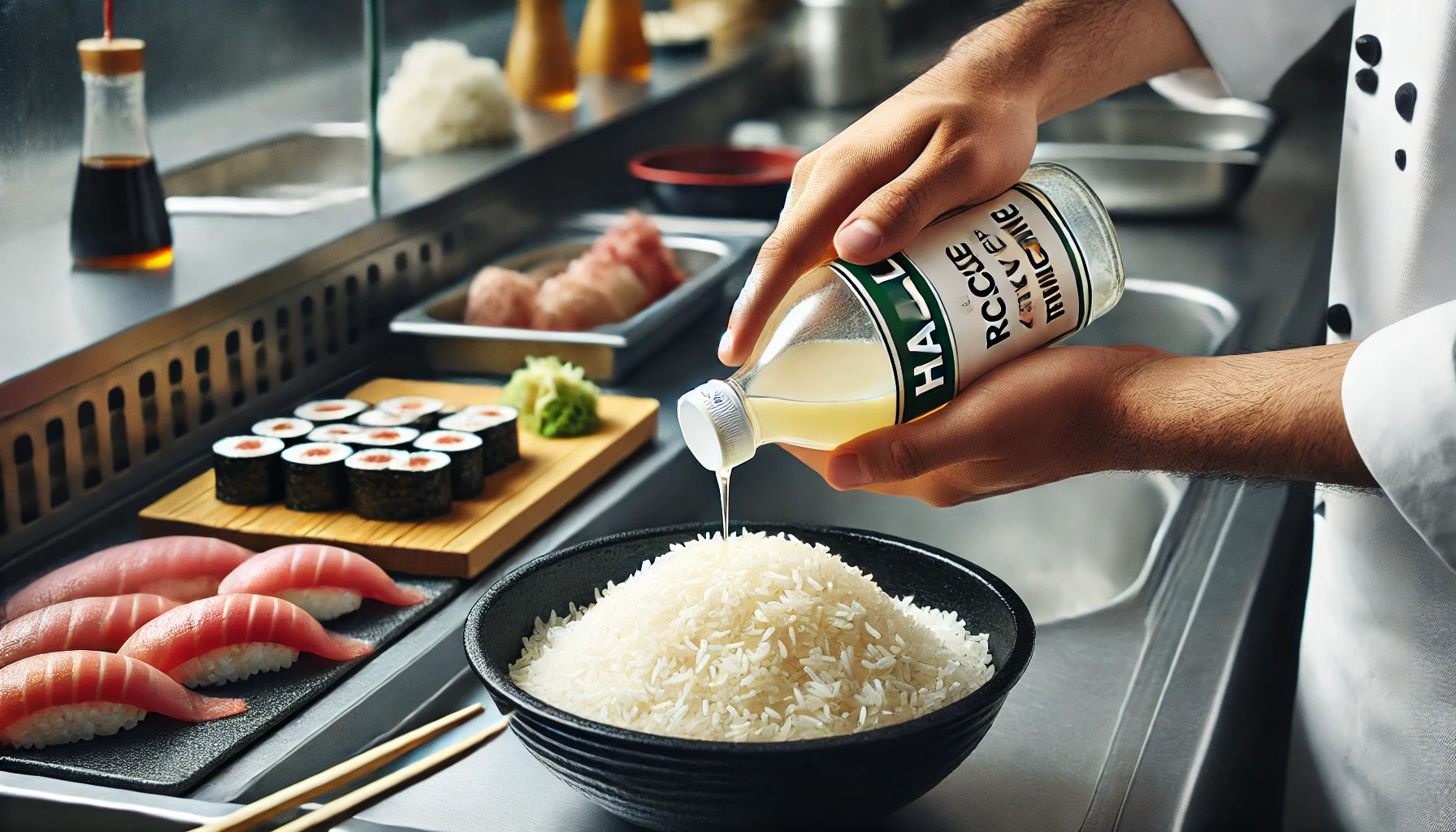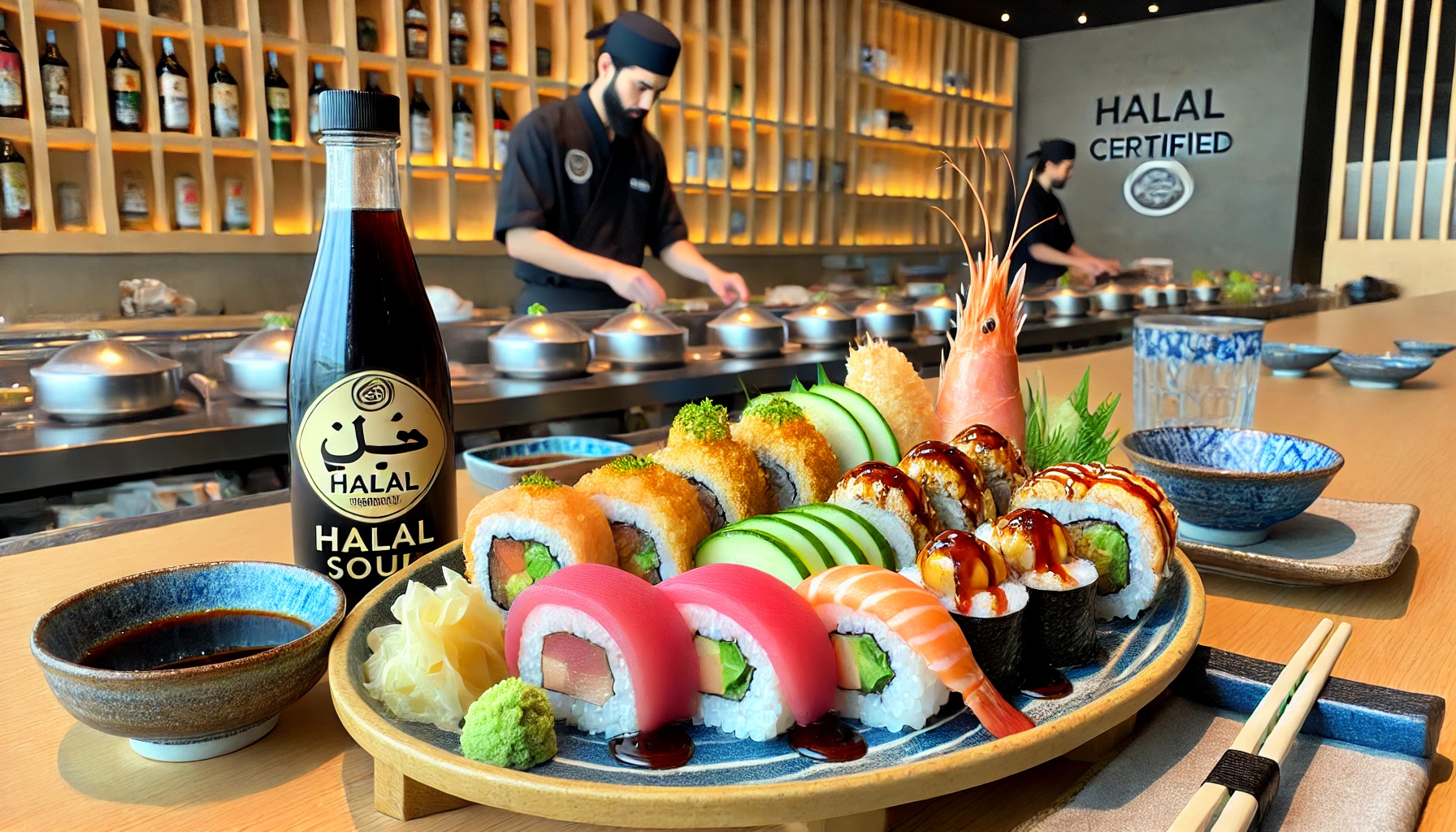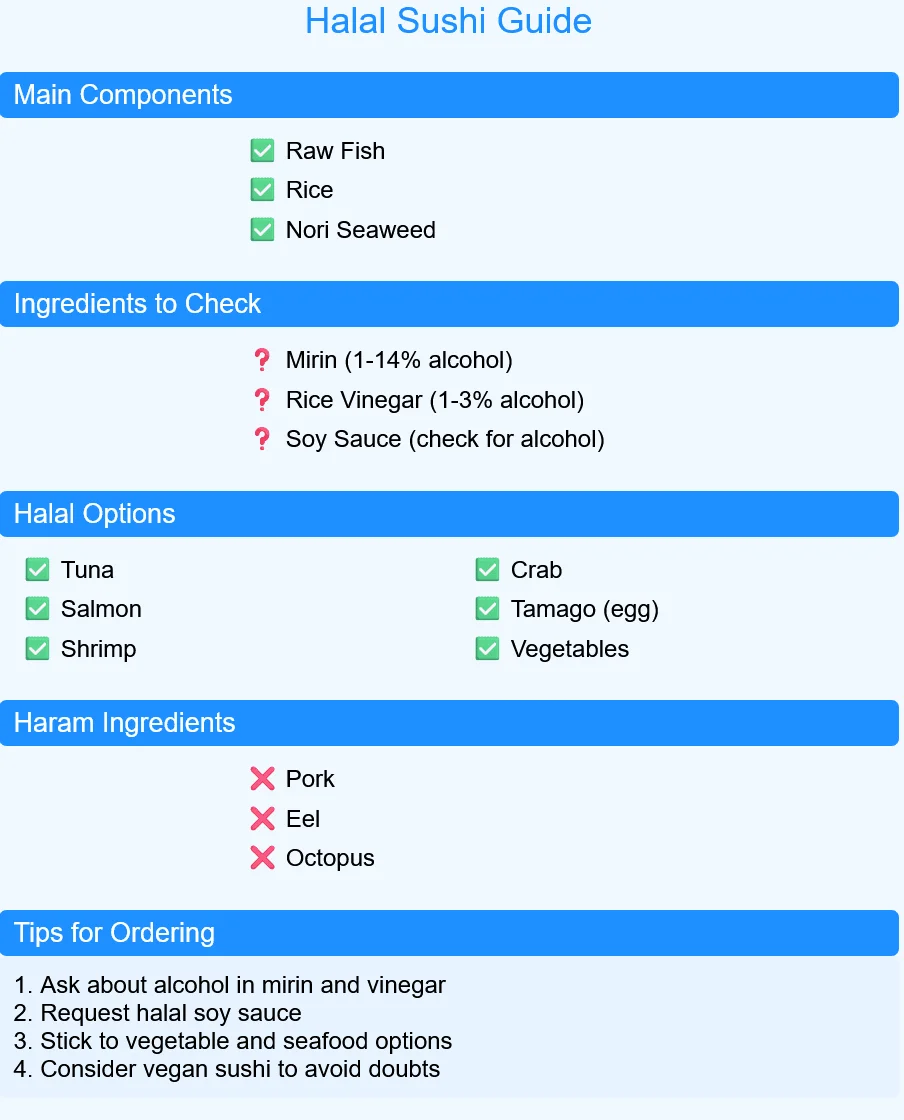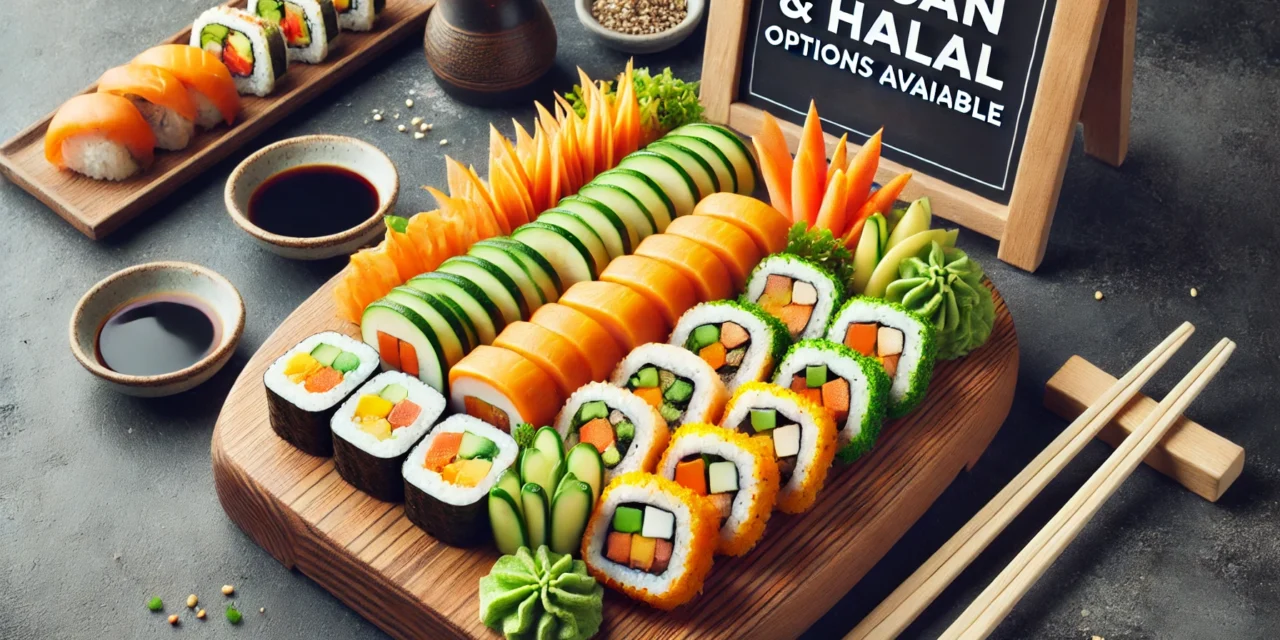Sushi is a popular Japanese dish that has gained a global following. However, for Muslims, the question of whether sushi is halal or not is a valid concern. Halal refers to food that is permissible under Islamic law, and it is important for Muslims to consume halal food. In this article, we will explore the topic of whether sushi is halal and provide some insights into halal sushi options available in different countries. We will also discuss some of the challenges that Muslims face when trying to enjoy Japanese cuisine. So, if you’re a sushi lover or just curious about the topic, keep reading
A Quick Summary on the Halal Status of Sushi
The main components of sushi like raw fish, rice, and nori seaweed are generally considered halal. However, some ingredients like mirin seasoning and alcohol content in the vinegar for sushi rice may raise doubts about the permissibility of sushi. Overall, sushi can be halal if care is taken to avoid or limit potentially haram ingredients.
“Sushi is one of my favorite foods, but as a Muslim I have always wondered if it’s really halal or not. This guide covers everything I needed to know – especially tips for ordering halal sushi!” – Salma, Dubai
Is Sushi Halal or Haram According to Islamic Law?
According to the Hanafi school of Islamic law, fish and seafood are halal to eat. So sushi made with raw fish and no other haram ingredients would be permissible to eat for Muslims. However, some specific ingredients need a closer look when it comes to sushi.
Does Mirin Make Sushi Haram?
Mirin is a popular Japanese condiment used to season sushi rice. It sometimes contains a percentage of alcohol, making its halal status questionable.
“Mirin is a sweet Japanese cooking rice wine with alcohol content ranging from 1% to as high as 14% in some varieties. The general consensus is that a substantial amount of alcohol would make mirin haram, while a small percentage may be permissible depending on the scholar’s opinion.” – Japanese Cuisine Guide
If the mirin contains a substantial amount of alcohol, it would be haram. But if the alcohol content is minimal, some scholars allow it while others prohibit it. To be certain, it’s best to avoid mirin or ask the sushi chef about the alcohol content. There are also halal mirin alternatives such as using rice vinegar or seasoning with sugar and salt instead.

Is the Vinegar Used for Sushi Rice Halal?
The vinegar mixture used to flavor sushi rice may potentially contain traces of alcohol as well. Like with mirin, a small amount of alcohol may be permissible according to some scholars while others would consider it haram no matter how little alcohol is present.
“Rice vinegar used for sushi contains an average of 1-3% alcohol. The permissibility depends on each person’s interpretation – my recommendation is to opt for rice vinegar certified as halal if this ingredient raises doubts.” – Muslim Food Blogger
You can ask the sushi restaurant if their rice vinegar contains alcohol or consider making your own sushi rice with halal rice vinegar. There are halal-certified rice vinegars available for preparing sushi rice at home.
Alcohol Content in Common Sushi Ingredients
| Ingredient | Alcohol Content |
|---|---|
| Mirin | 1-14% |
| Rice Vinegar | 1-3% |
| Sake (for cooking) | 17-20% |
Does Soy Sauce Make Sushi Haram?
Traditional soy sauce does not contain alcohol, so it is generally considered halal. As long as the soy sauce itself does not contain alcohol, it will not affect the halal status of sushi. However, some chefs use sake (rice wine) in place of water when making soy sauce, so it’s best to double check that regular soy sauce is being used.
What About Other Ingredients Like Crab Meat?
Seafood like crab and shrimp are halal according to Hanafi fiqh. But other sushi fillings like pork are haram. Eel and cooked meat are also not permitted according to some scholars, while others allow them. Simply avoid any ingredients that do not align with your understanding of halal dietary laws.
Common Halal and Haram Sushi Ingredients
|
Halal |
Haram |
|
Tuna |
Pork |
|
Salmon |
Eel |
|
Shrimp |
Octopus |
|
Crab |
Frog Legs |
|
Tamago (egg) |
Beef |
|
Cucumber |
Chicken |
|
Avocado |
|
|
Soy Sauce (if halal-certified) |
Soy Sauce (if contains alcohol) |
|
Rice Vinegar (if halal-certified) |
Rice Vinegar (if contains alcohol) |
|
Unagi Sauce (if halal-certified) |
Unagi Sauce (if contains mirin or alcohol) |
Important Notes:
- Soy Sauce: Halal if it doesn’t contain alcohol or has been halal-certified. Some soy sauces contain alcohol as a byproduct of fermentation.
- Rice Vinegar: Vinegar is generally halal, but some rice vinegars may contain alcohol due to the fermentation process. Opt for halal-certified varieties.
- Unagi Sauce: This sauce often contains mirin, which is a type of rice wine. Ensure that alcohol-free or halal-certified versions are used.

How to Order Halal Sushi at a Restaurant
When ordering sushi at a restaurant, consider the following tips:
- Ask the sushi chef if they use mirin or vinegar that contains alcohol in preparing the rice. Request they make your sushi without it if unsure.
- Avoid sushi rolls containing pork or other non-halal meats. Stick to vegetable and seafood sushi only.
- Request that your sushi be prepared with halal soy sauce instead of regular soy sauce that may contain alcohol.
- If dining at a sushi restaurant in Japan, look for a halal certificate or confirmation that they can accommodate halal preparations. Many restaurants are now Muslim-friendly.
“Don’t be afraid to ask the staff politely about halal options. More and more Japanese restaurants are becoming accommodating for Muslim patrons.” – Japan Travel Guide
- Opt for sushi made only with halal ingredients like tuna, salmon, shrimp, natto, tamago, and vegetables.
- Consider vegan sushi made with ingredients like avocado, cucumber, carrot, and inari tofu if you want to avoid any doubts.
Halal-Friendly Sushi Rolls
- Tekka Maki (Tuna roll)
- Kappa Maki (Cucumber roll)
- Oshinko Maki (Pickled radish roll)
- Ebi Tempura Maki (Shrimp tempura roll)
- Avocado Maki
- Tamago Maki (Egg omelet roll)
Tips for Finding Halal Sushi Restaurants
Finding halal-friendly sushi restaurants requires some research and asking the right questions. Here are some top tips:Call ahead to ask if they can accommodate halal preparations or have halal soy sauce and rice vinegar.
- Look for restaurants that specifically advertise halal Japanese food.
- Opt for vegan sushi restaurants that avoid alcohol and meat ingredients.
- In Japan, look for restaurants in Muslim-friendly areas like Takadanobaba in Tokyo.
- Ask local mosques or Islamic centers for recommendations of halal Japanese restaurants.
“With the growing Muslim population in Japan, we’re seeing more and more sushi restaurants that understand halal needs. Don’t be shy to ask!” – Aisha, Tokyo resident
Key Points to Remember
- The main components of sushi like fish, rice, and seaweed are halal. But some seasonings may be questionable.
- Mirin, vinegar, and soy sauce may occasionally contain small amounts of alcohol, so it’s best to verify with the restaurant.
- Avoid sushi containing pork, meat, or other haram fillings. Stick to vegetarian or seafood sushi only.
- With care taken to avoid alcohol and any other prohibited ingredients, eating sushi can absolutely be halal and permissible for Muslims.
“The most important thing I learned is to ask the sushi restaurant directly about ingredients and preparation when unsure. It’s possible to enjoy delicious halal sushi with this knowledge!”
By being mindful of potential alcohol content in sushi seasonings and avoiding any haram fillings, Muslims can definitely savor halal Japanese sushi without compromising their religious obligations. With an abundance of seafood and vegetable sushi options, there are plenty of ways to customize halal-friendly sushi meals at most Japanese restaurants.

Is Sushi Halal – FAQ
Halal refers to what is permissible according to Islamic law. Sushi itself refers to a Japanese cuisine that typically includes raw fish and other seafood. The permissibility of sushi depends on its ingredients and the way it is prepared.
What does it mean for sushi to be halal or haram?
“Halal” means permissible, while “haram” means prohibited according to Islamic law. So, if sushi ingredients or the way it is prepared violates any Islamic guidelines, it would be considered haram.
Can sushi be considered halal?
Sushi can be considered halal if it is prepared using permissible ingredients and no alcohol or haram substances are used in the preparation.
Does sushi contain alcohol?
While many sushi recipes include ingredients like mirin, a Japanese rice wine, not all sushi contains alcohol. Some sushi establishments may use non-alcoholic substitutes or omit the use of alcoholic ingredients altogether. It’s important to ask the sushi chef about the ingredients used.
Can I eat sushi if I follow the Hanafi school of thought?
According to the Hanafi school of thought, using alcohol in small amounts for cooking is considered permissible, as long as the alcohol content evaporates during the cooking process. So, if the sushi is prepared with mirin that evaporates during cooking, it may be considered halal in this context.
How can I make sure sushi is halal?
If you are unsure about the halal status of sushi at a restaurant, it is best to ask the sushi chef directly about the ingredients used and the preparation methods. They will be able to provide you with the most accurate information.
Is sushi rice halal?
Sushi rice is typically seasoned with vinegar. While vinegar is halal, some brands may contain alcohol. It is recommended to use rice vinegar that is certified halal if you are making your own sushi at home.
Can sushi rolls be considered halal?
Sushi rolls can be considered halal if they are prepared with permissible ingredients and no haram substances are used in the preparation. It is always important to verify the ingredients and cooking methods before consuming.





